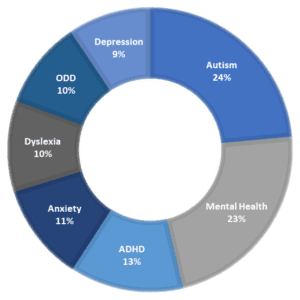by Robert Jason Grant Ed.D, LPC, RPT-S, ACAS
Several years ago, I received a referral to provide therapy to a young boy diagnosed with autism spectrum disorder (ASD). This was my first referral to work with a child with ASD. I quickly realized that my mental health license and my training in play therapy were missing something to fully and effectively work with this child and his family. I began searching for established ASD treatments I could learn and incorporate into my work with this young person and other clients struggling with similar issues. Along this journey I eventually integrated models and evidence-based practices to create a protocol for mental health therapists and especially play therapists called AutPlay® Therapy. This was satisfying in my individual clinical work, but I still felt somewhat isolated in terms of a profession identity and accountability regarding my work with ASD.
MAR









